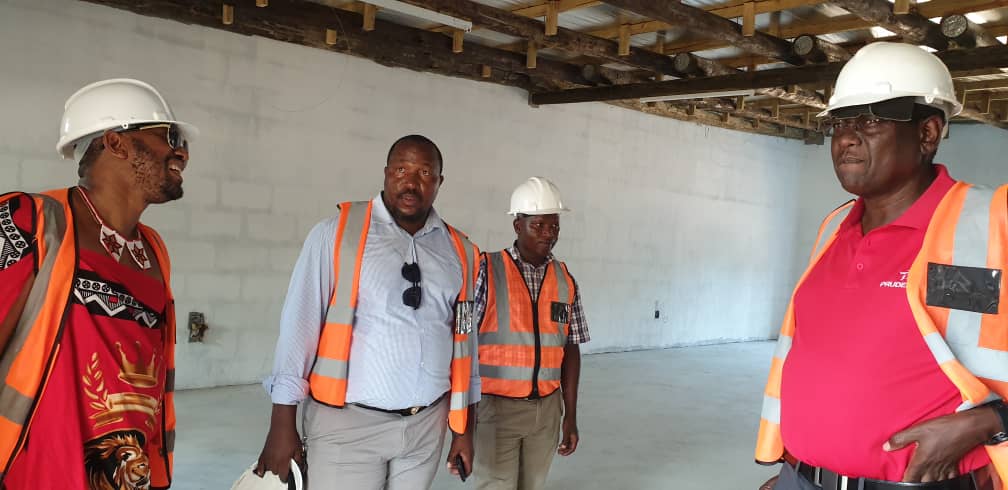
Construction of the Inlanganisela Yabomake Trade Hub in Manzini, of the Kingdom of Eswatini has reached an advanced stage with over 70% of works being completed. The Trade Hub and Private Sector Support Project will cost 1.2 million euros.
The Trade Hub is expected to provide market space for over 500 Small and Medium Entrepreneurs with a large focus on women in business. It will have sleeping quarters which will accommodate more than 200 traders, a trading floor as well as storage facilities. Part of the building has already been roofed and plastered while the ablution block is at roof level.
Assistant Secretary General in Charge of programmes Ambassador Kipyego Cheluget accompanied by the Coordinator of the COMESA Aid for Trade (COMAid) Hope Situmbeko and Mwape Kaunda, a senior finance officer toured the facility early this week. Prior to the tour, the Project Steering Committee meeting was held in Mbabane, on 29th January 2020.
The support provided to the Kingdom of Eswatini is part of over Three million Euros allocated through the COMESA Adjustment Facility with funding from the European Union.
Speaking during the official opening of the steering committee meeting, Ambassador Cheluget said effective implementation of economic programmes happens at national level or through joint actions of countries that link their production and trade processes for mutual benefits. This he said is done through an active private sector, supported by public institutions.
“I am pleased to note that, the support being provided through the Trade Hub and Private Sector Project, allows the COMESA to support both private and public sector for the achievement of tangible results that have a direct impact on the economy,” Cheluget added.
Under Secretary and chair of the project steering committee in the Kingdom of Eswatini Mr Siboniso Nkambule said the project will enhance performance of the leather value chain, improve quality infrastructure services and capacities for investment promotion and provide support to the Project Implementation Unit.
Activities to be undertaken will address capacity and other constraints to make the country’s exports competitive in regional and international markets. They also aim at improving the business and investment climate to enable Eswatini achieve its strategic policy objectives.
The project has a large focus on supporting women in business in line with the COMESA programme in gender that aim at promoting the role of women and youth. It also compliments the 50 Women Speak programme that has been rolled out in the country.
It is also in line with COMESA’s Industrialization Strategy and Policy on attainment of sustainable growth and development of the member States by promoting balanced and harmonious production and marketing structures.
The support has been structured with a vision to realize the benefits of a larger Market at the COMESA level as well as in the context of the Tripartite Agreement and the Africa Continental Free Trade Area.

